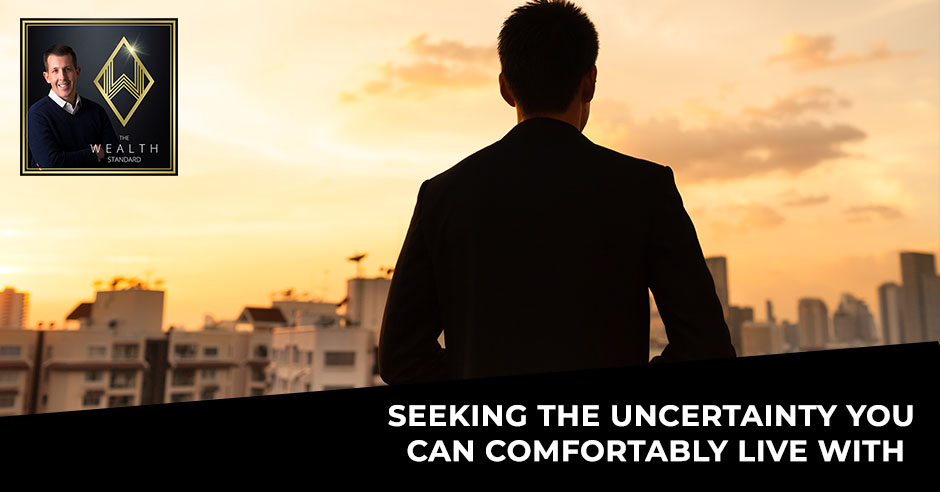Mathematical Truths: On The Constants In A Non-Constant World With Todd Langford
Podcast: Play in new window | Download
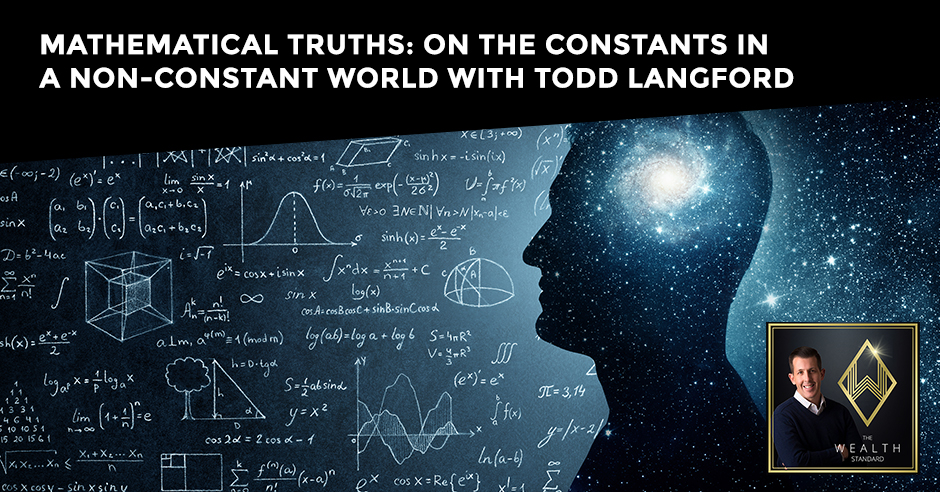
We have reached an age where we reward people for their deep specialization of knowledge. Now, we have experts who have become multi-millionaires from leveraging what they know best. The downside is how, by being someone whose opinions and insights are held at a pedestal, it can be so easy to lose other people’s trust when you admit you’re wrong. Patrick Donohoe explores this topic by bringing back his conversation with Todd Langford, the CEO of Numbers Analytic, Inc. Here, they unpack the idea of the role of mathematical truths and what it informs us of the constants in a non-constant world. Dive deep into this brief but insightful conversation on individual specialization and how the uncertainties of the future impact what we do.
—
Watch the episode here:
Listen to the podcast here:
Mathematical Truths: On The Constants In A Non-Constant World With Todd Langford
Humanity and life are messy. Every morning, we wake up to this individual awareness of what’s going on that no one else has. Our self-awareness recognizes our vast imperfections, our past and present mistakes and shortcomings, and our taxing insecurities if we’re being honest. We then venture out into a world of billions of other people who are in the same situation, and then hypocritically judge and discriminate against those who manifest imperfections or differences. Likewise, we envy and scorn those who live up to society’s lofty expectations or at least hide them well. As I said, humanity and life are messy.
We’re fortunate to live in a world where we don’t have to think that much anymore. It’s a world that no longer rewards generalized knowledge such as the breadwinner of a family knowing how to till the land, break a horse, hunt, skin animals for food, defend against predators, build a house, patch a roof or build furniture. Nowadays, the demand and the rewards go to those with deep specialization of knowledge. Specialization has led to multi-millionaire status by learning how to entertain viewers by opening toys or gifts on YouTube and maybe winning professional video game competitions. Deep specialized knowledge spreads across a wide range of subjects way too numerous to list here but I hope you get my point.
The math is absolute, but the assumptions that are applied to the formula are not. Click To TweetMy purpose here is to identify that with increased individual specialization comes even more trust in the specialization of others. The paradox is that trusted sources might do more to protect pre-existing trust than to deepen their knowledge. More often than not, deepening knowledge requires admitting or at least being willing to admit that you may be at fault. You may be wrong. When you admit you’re wrong, you lose trust. I hope you enjoy this episode’s The Truth About Money segment with Todd Langford.
—
That’s when the development of knowledge is in red. It’s in the experience of testing and proving in the real world. That’s where we’ll go next which is this balance between math, factual truths of the equations and how they apply to a non-constant world that’s ever-evolving. Adding a layer to that is as human beings, we all have these limitations. We have to have sleep, eat food and drink water. We can’t just operate at full level–ten awareness and capacity for very long. We’re constantly seeking ways to conserve energy.
When you accept the truth, it’s almost as if you’re now able to conserve future energy because you don’t have to figure something out anymore. This puts things in a dangerous place. Especially the professional context not only has this belief established, but it also puts this layer or force field around it where that force field is built on, “If I’m wrong, I’m no longer a professional.” You look at the different truths that have been subscribed to. You have some of those simple ones whether it’s lightning, thunder, storm, fire or drought. It’s the wrath of God. That was the original explanation of how things operate. Science and math then came along and you’re able to disprove those things.
It didn’t go well for the Copernicus of the world. The other discoverers of these mathematical factual truths, many of them went to jail or were killed. You don’t necessarily have those consequences now. At the same time, you have people that are stuck in the adoption of belief systems passed on by someone who is a professional or their culture or some other way. It wasn’t necessarily the experience of the factual mathematical truths behind it. Maybe unpack that idea of what’s the role of mathematical truths and constants in a non-constant world.
You talked about people being jailed for the truth. Maybe it’s not as drastic but in a lot of ways, it’s probably as devastating to them when they shut their mind out because they hear the word professional. They turn their mind over to this other person without ever checking anything that’s been said, without even passing that through common logic to say, “This fits or this doesn’t fit.” There are some real dangers there but the math behind it is absolute. This idea of relative math, that’s not true. There are relative events in nature. There are changes in the components of the mathematics that might be wrong but the math itself is correct. Two plus two is always going to be four. That’s just the way it is. It may be that it shouldn’t be two plus two, maybe it should be one plus three. Maybe it should be some other number in the assumptions that are put in the wrong.
Think about Christopher Columbus. What happened in his timeframe was four ships went out and none of them came back. Mathematically, zero minus four means we lost four ships. The analysis at the time was they fell off the side of the earth because the earth is flat. The math was right but the analysis of what happened to the four ships was incorrect. You’ve got Christopher Columbus that does some math work, looking at the skies, looking at different things and figuring out, “The Earth is round.” I believe in those pieces but the only way he could find out was by proving it.
Even though the math was right, it might not come out that way. He had to send ships out to go find out if it was true. Prior to that, the fact that four ships didn’t come back could mean a lot of things. They went down in a storm or it could even be that they found a place that was a lot nicer than where they were and they didn’t want to go tell anybody else because they were afraid their place wouldn’t be as nice anymore. Who knows what happened to those four ships? We know now that they didn’t fall off the side of the earth. Something else clearly happened.
Over time, that happens. When we learn mathematics in grade school, everything is one-dimensional or maybe two-dimensional from the standpoint of two plus two is going to be four. Everything is considered constant. One of the differences we get into is when we get into more advanced math. Even financial math is more advanced math because it adds a dimension and it’s the dimension of time. That’s a big one that gets left out often. When we add that dimension of time, it changes the formula. It doesn’t mean the math is right or wrong. Pure mathematics is still the same. It’s just that now, we have different components in there.
One of the unfortunate things that skew the math when we add the element of time is we have to add other assumptions that are not constant or not guaranteed to be in a certain area. For instance, we’re going to look out 30 years into the future. If 30 years is our time frame, that is absolute, but what happens over the 30 years? Interest rates, taxes and inflation fluctuate. We have all these assumptions now that we have to guess on and that makes the end result flexible. It makes it move around. It makes it not absolute. The math is absolute but the assumptions that are applied to the formula are not.
There’s no way around that outside of using past experience. That’s a dangerous thing to some degree. If we use past experience for what’s going to happen in the future, it can be one of those traps that put us back to, “This is the way it’s always been done. This is the way the environment has always occurred in the past. Therefore, it’s going to occur that way into the future.” Some things act like that but with technology, we have no idea what the future looks like and that’s one of the big unknowns.
Thirty ago, who would have thought that everybody walking around would have a cell phone in their pocket at all times? That they could not get more than 10 feet away from without being anxious and bothered? What kind of stuff is going to continue to the future along that same line? We have no idea what’s even going to be invented that we’re not going to be able to live without. The impacts of that both on inflation and on opportunity can’t be weighed. We can only guess.

Mathematical Truths: One of the unfortunate things that skew the math when we add time is that we have to add other assumptions that are not constant or not guaranteed to be in a certain area.
You also have preferences. There are many different forces that will impact life and the purpose behind what you do financially. You’re right. You are basing your future on the assumptions now. It’s similar to how we look back on what people did 200 years ago with a completely different moral code, set of circumstances, concerns and environments. We assume that they should have every bit of knowledge, experience, and wherewithal that we have today. It’s not fair. It’s the same thing looking into the future. It is changing at a rapid pace, and yet there are some widely held constants that are used that are essentially hurting whatever the future experience is because they’re based on today.
It’s similar to all planes have to create a flight plan. What’s the constant in the flight plan? It’s the starting place and the destination. What happens between the starting place and the destination? You have altitude changes, speed changes and pitch changes. There are all sorts of things happening. That’s why even though a pilot may fly the same route a million times, every single time he flies it, it’s a different environment. The idea is that there must be constant open-mindedness and an open door to what’s happening at the moment. Are the assumptions the same? Have they changed? If they’ve changed, what do I do about it? The requirement almost to stay in the course is to constantly be asking questions that challenge the previous assumptions.
Important Links:
About Todd Langford
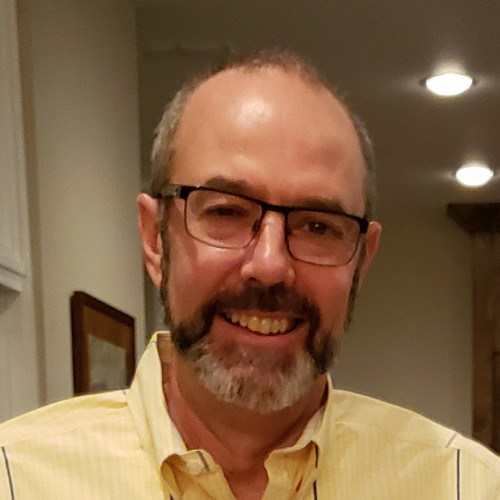 Todd Langford is the Founder & CEO of Truth Concepts, Partners 4 Prosperity, and Prosperity Economics Advisors.
Todd Langford is the Founder & CEO of Truth Concepts, Partners 4 Prosperity, and Prosperity Economics Advisors.
Love the show? Subscribe, rate, review, and share!

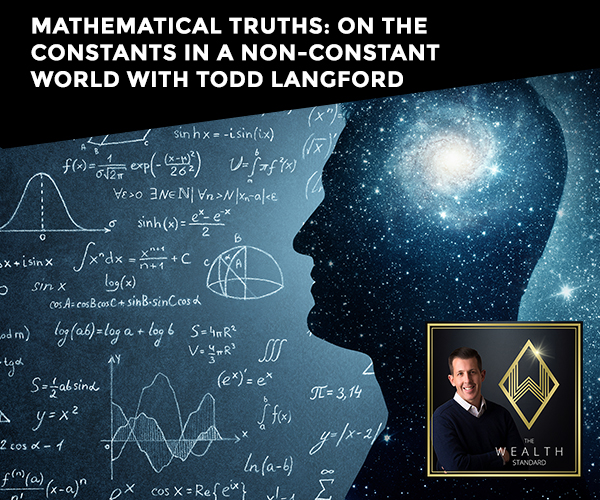

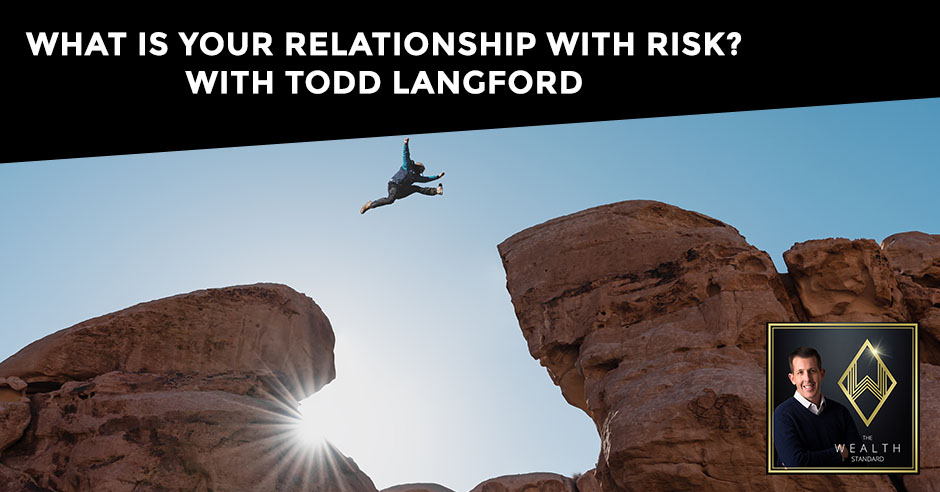
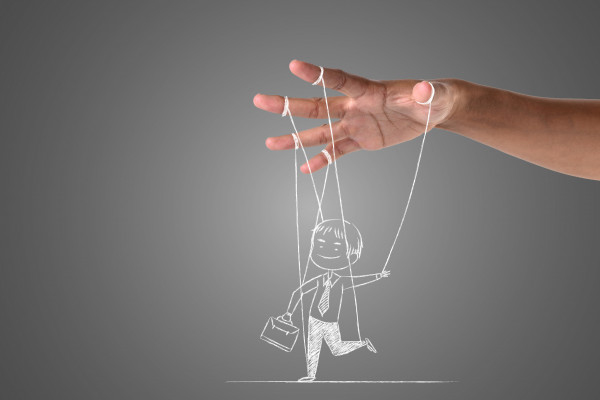
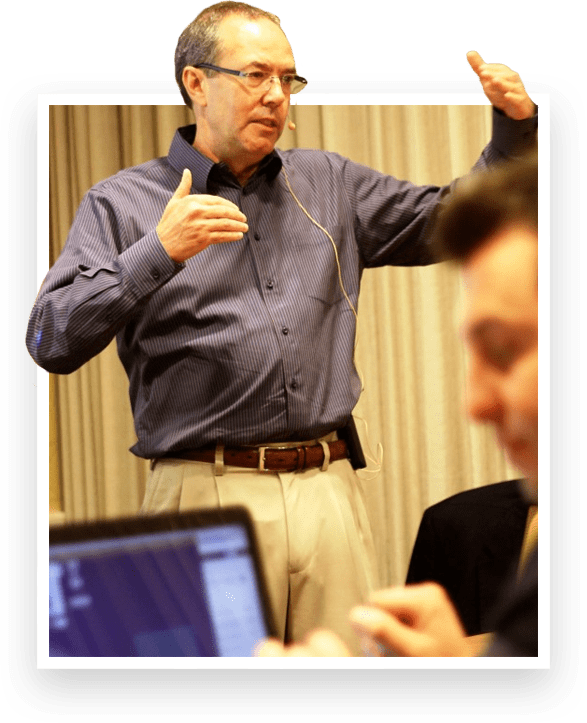 Todd Langford is the Founder & CEO of Truth Concepts, Partners 4 Prosperity, and Prosperity Economics Advisors.
Todd Langford is the Founder & CEO of Truth Concepts, Partners 4 Prosperity, and Prosperity Economics Advisors.
